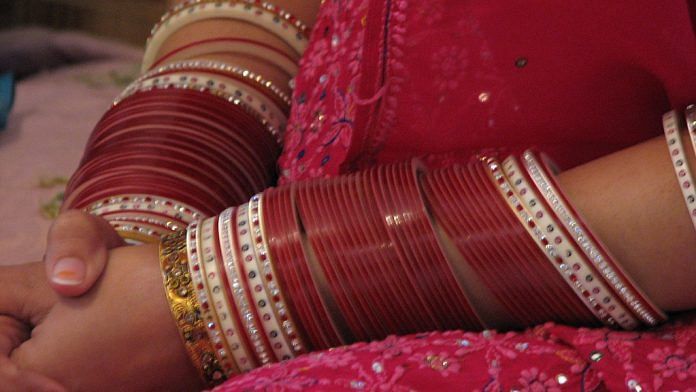SC judgment on sex with minor wife should not be interpreted as a tool for parents and community leaders to “tame” rebellious daughters.
In a widely-praised judgment last week, the Supreme Court declared that sexual intercourse with a minor wife will be deemed rape under the law. In its immediate aftermath, the judgment led to calls for the nullification of all child marriages, which in my view, is a top-down approach with serious consequences, and removed from the social realities of the country.
To begin with, the judgment in a public interest litigation filed by Independent Thought, lends itself to two interpretations.
The first, a formalistic interpretation, which deems all sexual intercourse with a girl under 18 years of age as statutory rape, including with an underage wife. In the context of a large number of underage marriages, comprising both forced as well as self-arranged or choice marriages by the girls, a nuanced response is necessary. Such a response will safeguard the rights of young persons, rather than enhance their vulnerability and voicelessness, especially of adolescents. What we do not need is a flattened, de-contextualised response.
A harmonious interpretation is also possible, involving a reading of all concerned laws. Such an interpretation would read the judgment as correcting an anomaly within the law, which de-criminalised non-consensual sex with wife of 15 to 18 years on the one hand, while declaring all sexual intercourse, including with a consenting older adolescent till 18 years, as rape (called statutory rape). This judgment allows non-consensual sex with a wife under 18 years to be prosecuted as rape, thus aligning the provisions on statutory rape with marital rape.
However, the judgment steers clear of interfering with the Prohibition of Child Marriage Act, 2006, under which all under-age marriages remain legal. These may be declared void, but only at the initiative of the spouse who was a minor at the time of the marriage, by exercising this option within two years of attaining majority.
The judgment, if interpreted in light of the child marriage law, would only strike at non-consensual sex with an underage wife as rape. This interpretation best lends itself to advancing social justice goals within socio-economic realities that compel early marriage, which was further complicated in 2012 with the problematic increase in age of sexual consent from 16 years to 18 years.
All discussions on the law relating to statutory rape – including of an under-age wife – must take into account key socio-economic realities within which the law operates. These include several aspects, of which four are important for the purpose of understanding early marriage.
First, there is evidence of increasing numbers of early marriages that involve older adolescents. In fact, the trend suggests a shift away from ‘child marriage’ to what is called, ‘early marriage’.
Second, there is a rise in self-arranged marriages by young people, which are not forced. While this is not the predominant pattern, it does disrupt the popular imagination of forced marriages of children.
The third aspect pertains to socio-cultural reality that makes marriage a safer option for young people who choose to be together, to escape the stigma of pre-marital sex – especially when such intimacies transgress social divisions of caste and religion, and run the very real risk of ‘honour’ related backlash.
The fourth aspect is that, with women’s participation in the paid workforce in India being amongst the lowest globally, marriage (early or in adulthood) remains the primary means of social and economic security for women. In other words, marriage in India is almost compulsory for a girl/woman’s social and economic stability. These conditions must be recognised as shaping the ‘choices’ of all marriages, arranged by the family or the self.
An analysis of district court judgments from Delhi from 2012-16 conducted by Partners for Law in Development shows that most of the cases filed against consensual sexual relations by girls under 18 years is by the parents of the girls. Through these cases, the parents seek to prosecute the husband of their daughter, and declare the marriage void under Prohibition of Child Marriage Act, 2006. Typically, the legal action is initiated by the parents to regain control over their daughter and punish the man their daughter has chosen.
In a highly gendered society, where stigma and shame are inevitable outcomes of sexual expression by girls, the increase in the age of statutory rape to 18 years, blurs the distinction between abuse and positive sexuality. This only adds fear of law to the existing social stigma, making it difficult for girls to seek help or avail health services in crisis. Such consequences make it important to interpret the Supreme Court verdict as criminalising only non-consensual sex with an underage wife. In fact, this is a compelling justification for restoring the statutory age of consent to 16 years, to ensure that the law is able to redress violations and not punish positive expressions of adolescent sexuality.
Any other interpretation of the judgment would amount to sanctioning the use of law as a tool of retribution in the hands of opposing parents and community leaders, to “tame” rebellious daughters, and legally punish their partners.
For the law to be aligned to fundamental rights and freedoms, it must not intentionally or unintentionally serve the interests of moral policing, honour-caste-communal retribution.
Madhu Mehra is a feminist lawyer, and founding member and Executive Director of Partners for Law in Development.



